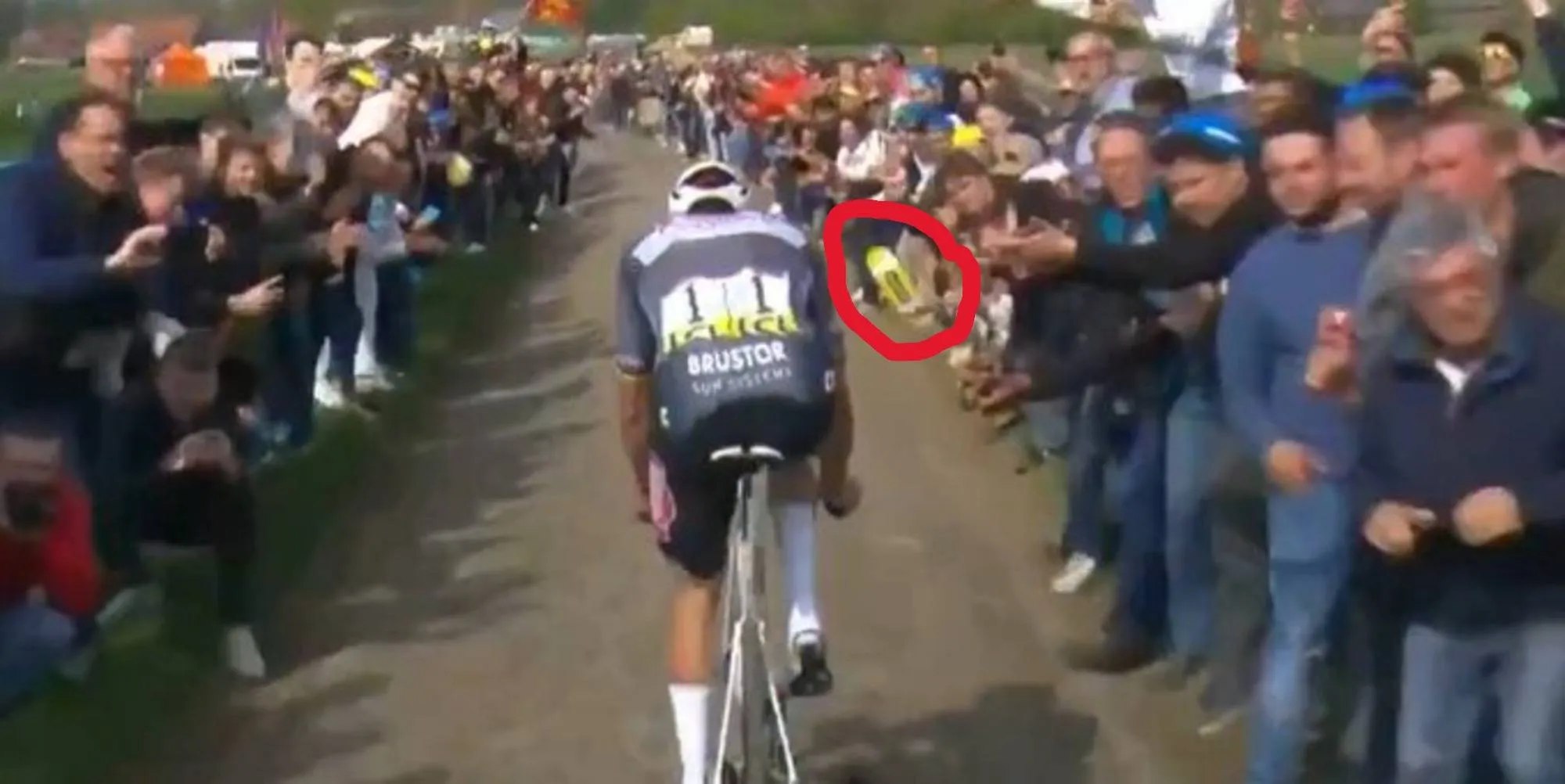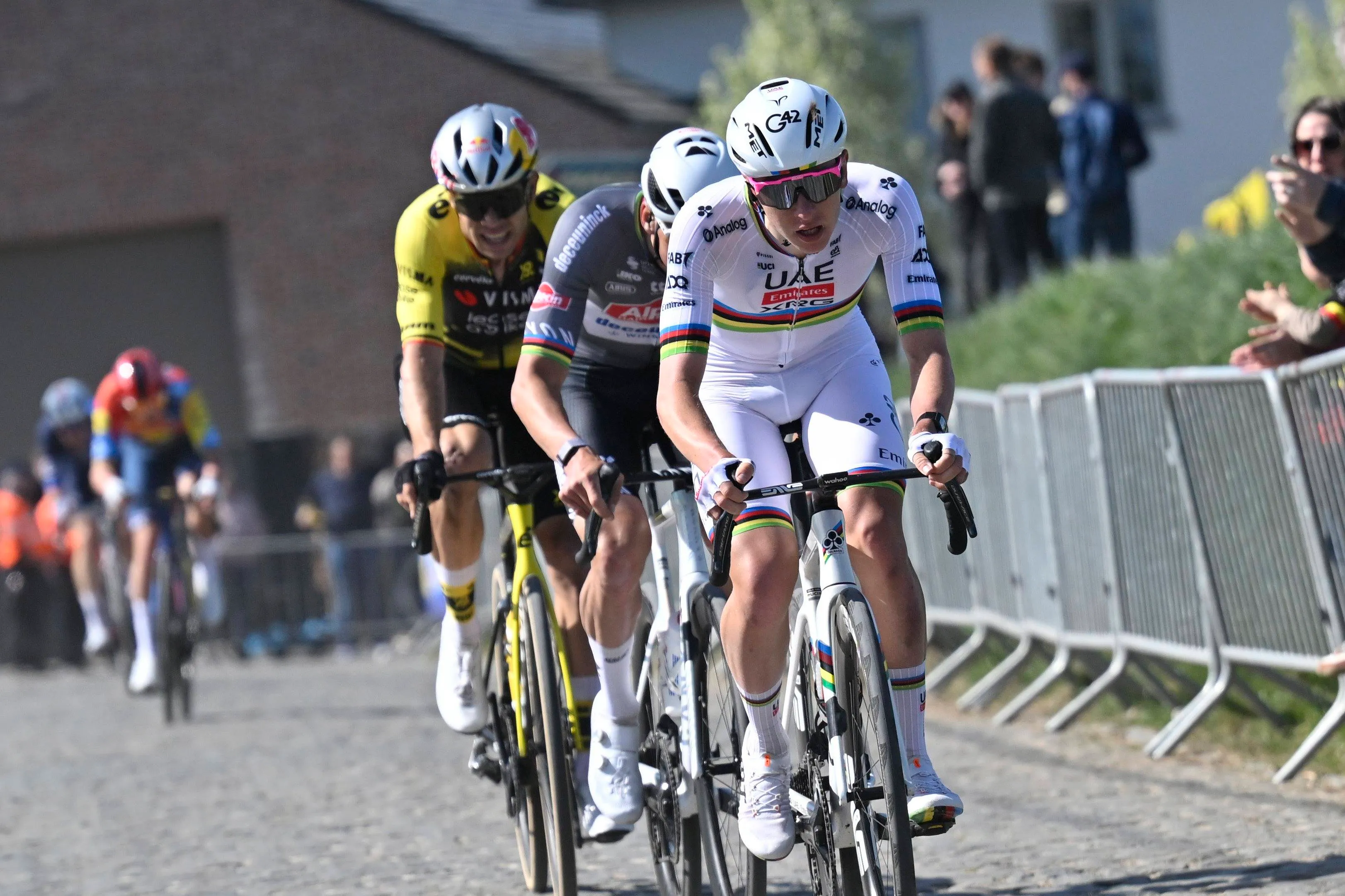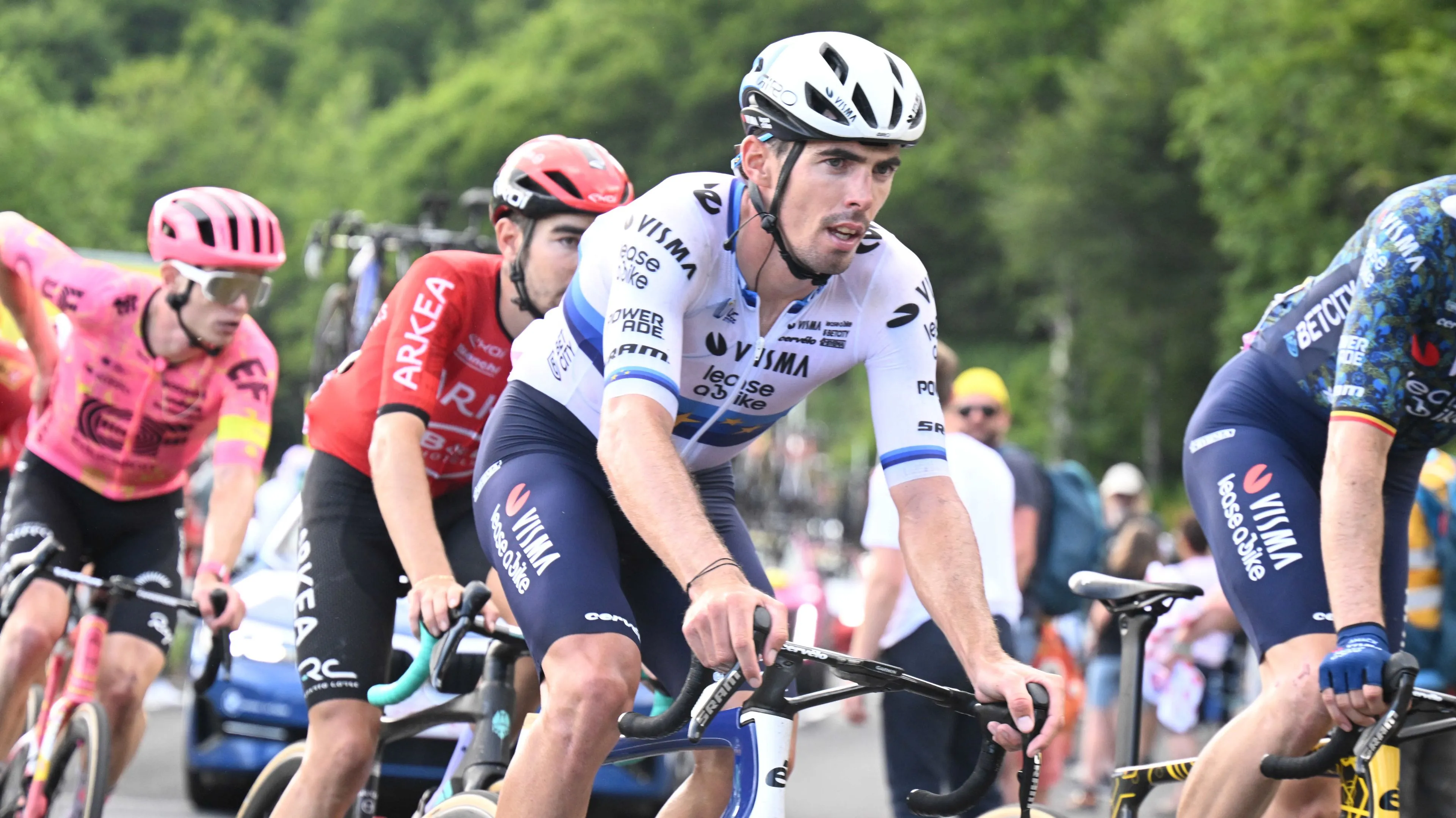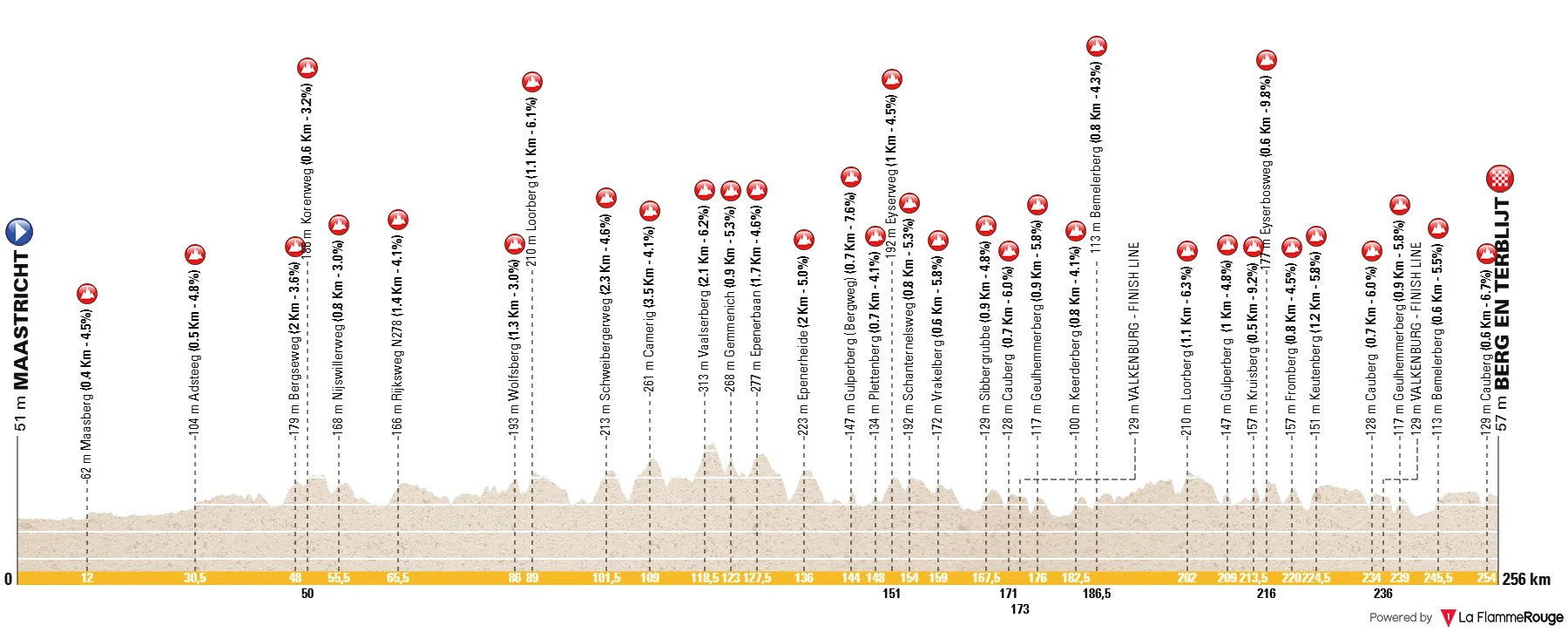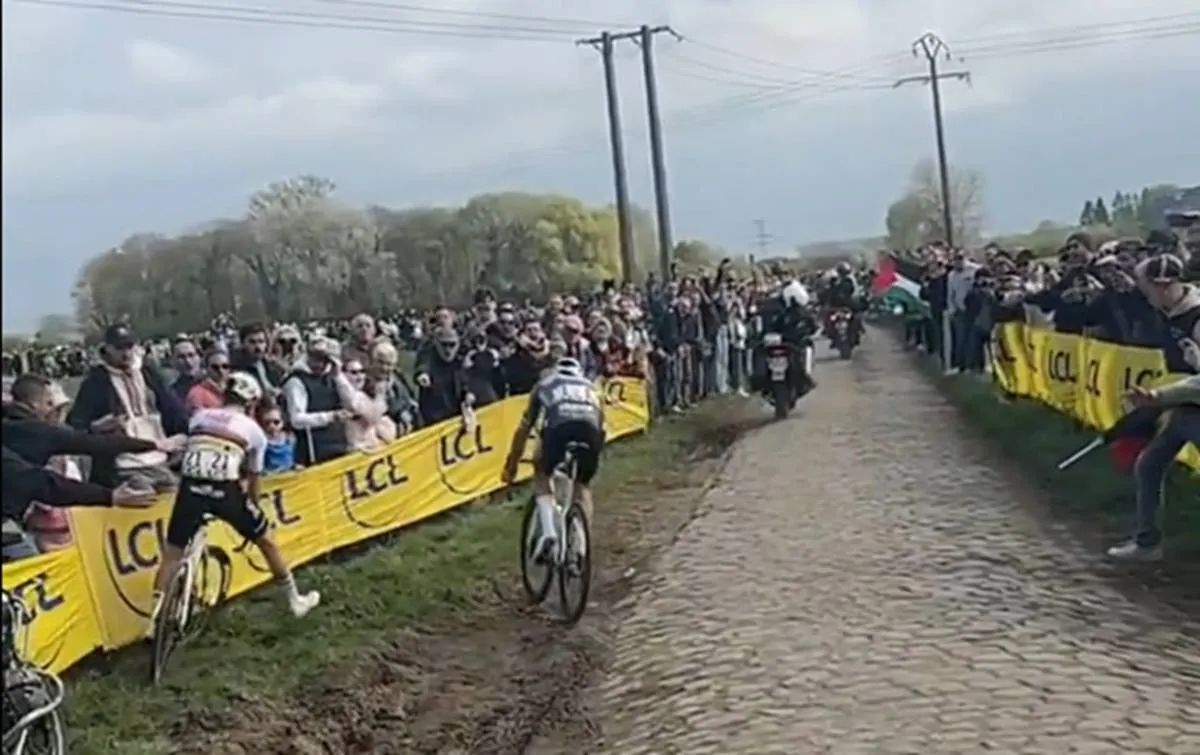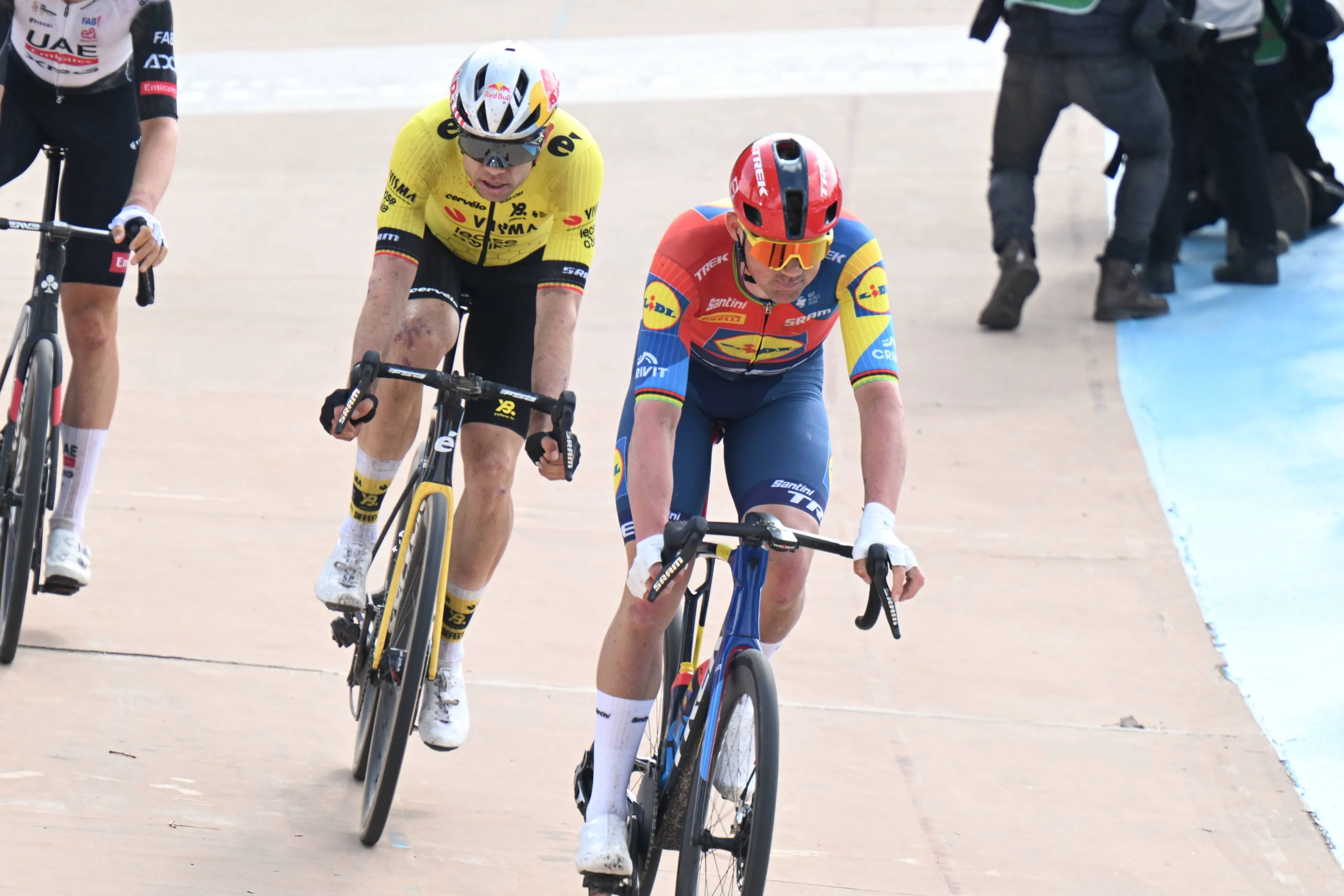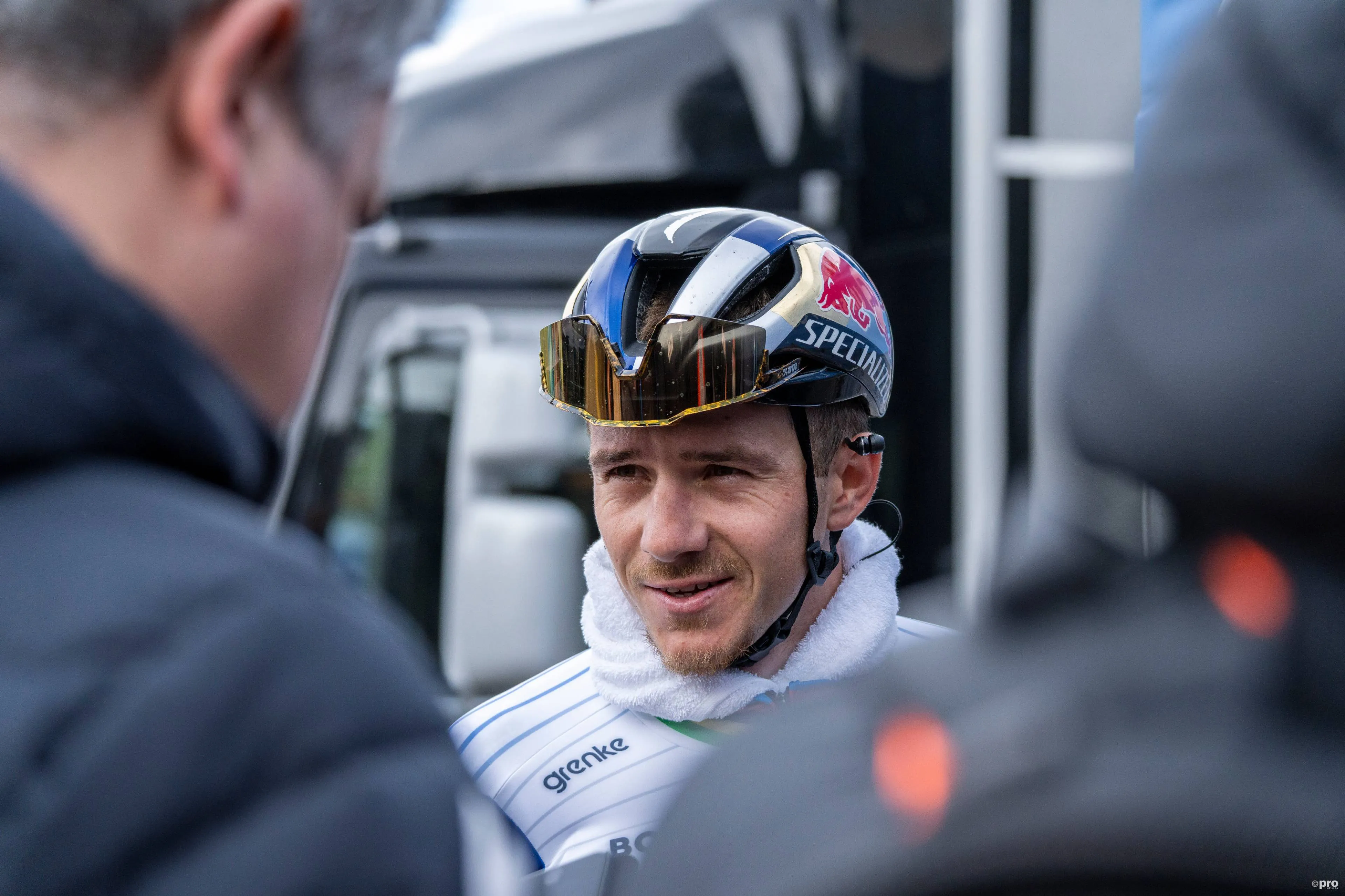“These are facts that are unacceptable and deserve a serious signal” – Notable sports lawyer weighs in on Mathieu van der Poel bottle incident
CyclingTuesday, 15 April 2025 at 10:15
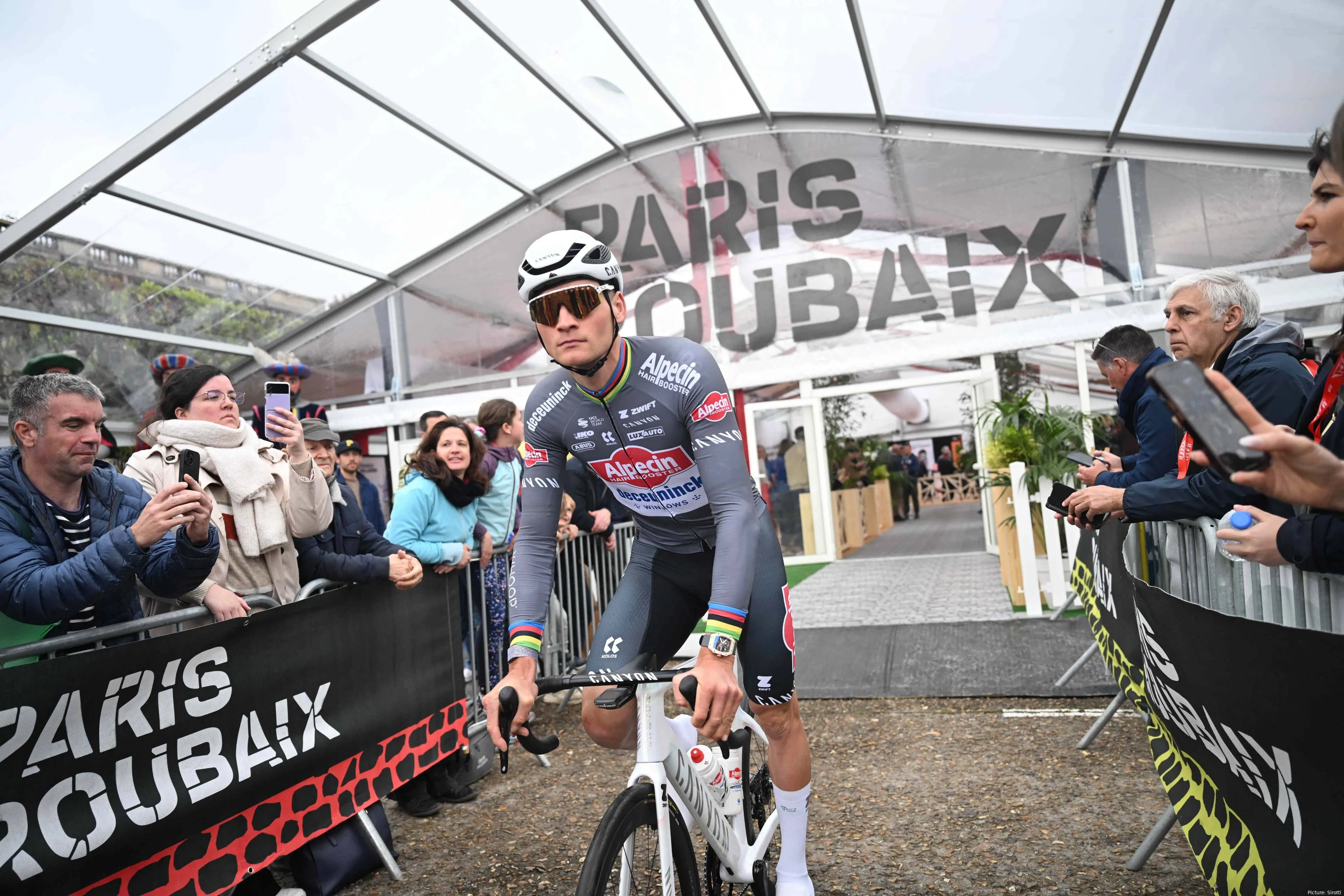
Mathieu van der Poel wrote another chapter in his legendary
career last weekend, powering to a third consecutive victory at Paris-Roubaix.
His dominant display on the cobbles of northern France further cemented his
status as one of the greatest Classics riders in history.
But rather than celebrating the ride itself, much of the
post-race conversation has focused on a dangerous incident that could have
ended very differently.
Read also
While speeding towards victory at close to 50km/h, Van der
Poel was struck in the face by a bottle thrown by a spectator. The object,
hurled from the side of the road, made direct contact with the Dutchman and
could have caused serious injury.
That it did not disrupt his rhythm or derail his race was as
much down to luck as it was skill. We reported yesterday that the individual
responsible has now turned themselves in to French police, but the fallout is
just beginning.
What will happen now?
With the suspect identified, the legal process is expected
to unfold swiftly. WielerFlits spoke with sports lawyer Ben Leyman to
understand how such an incident would be prosecuted and whether Van der Poel’s
demand for a harsh penalty, reportedly calling it "attempted
manslaughter", holds legal ground.
Read also
“Then the supporter would have to have had the intention to
kill him. That might be going a step too far. Let us above all hope that this
person did not have the intention to kill. I assume that this is not the case.
In Belgian standards, attempted manslaughter would therefore be a somewhat too
severe qualification. In this case, this should rather be classified as
'intentional assault and battery’.”
While Belgian law would consider this a case of assault, the
incident occurred in France and will be prosecuted under French jurisdiction.
Leyman compared it to the infamous "opi-omi" case at the 2021 Tour de
France, where a fan caused a mass pile-up by holding a cardboard sign into the
road.
“In Belgium, the punishments for intentional assault and
battery range from eight days to six months and/or a fine of at least 200
euros. If it is done with premeditation, the punishment is at least one month
to one year in prison. And then the fine is at least 400 euros.”
Read also
“Now the offences were committed in France and so the case
will normally also be heard there. There, the same offence is punishable by
fines and/or prison sentences. Take the case of the lady who held up the sign
Allez opi-omi in the 2021 Tour de France, which resulted in a massive crash.
That case involved unintentional assault and battery, for which she was fined
1200 euros. I assume that a stricter signal will be sent in this case.”
Given the dangerous nature of the act and the global
attention it has received, Leyman believes the courts will be keen to make an
example of the perpetrator.
“This is not just about the fact that happened. You have to
see it in a broader sense. It is really a signal that needs to be given here.
This cannot continue in this way.”
Read also
A pattern of abuse
For Van der Poel, this wasn’t an isolated incident. Over the
years, the Alpecin-Deceuninck star has increasingly found himself the target of
hostile behaviour from sections of the crowd.
At the E3 Saxo Classic earlier this spring, a fan spat at
Van der Poel during his winning ride. According to Het Nieuwsblad, that
individual will now face a fine.
“I really don't understand why people do that,” Van der Poel
said after E3 to Cycling News. “I mean, it's not the first time. I was also
spat at during the World Championships last year. I'm done with it.”
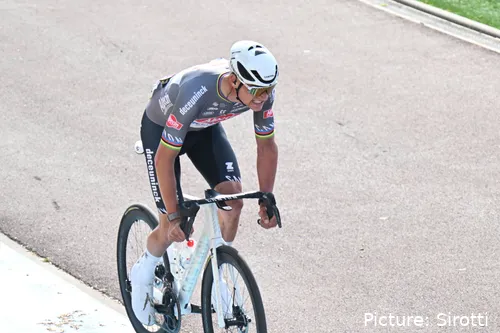
Many fans cannot find it in themselves to appreciate Mathieu van der Poel's dominance
The incident he is referring to happened on a cyclocross
bike, where he has been spat at and had beer thrown at him multiple times, and
he retaliated by spitting back.
“I race in a certain way, but that should not be a reason to
get spat at or booed. It’s really not okay. In my opinion, the organisation
needs to start taking action. These things are unacceptable.”
The incident also brings back memories of Van der Poel’s own
legal troubles during the 2022 World Championships in Australia. Then, the
Dutchman was arrested following a confrontation with two teenage girls who had
reportedly knocked on his hotel room door repeatedly the night before the race.
Although the charges were later downgraded and the case resolved, Van der Poel
was heavily scrutinised in the press.
That experience now stands in stark contrast to his current
position, not as the accused, but as a victim of inexcusable fan behaviour.
Read also
What consequences should follow?
Asked what kind of punishment might be appropriate in this
case, Leyman advocated for something impactful, though not necessarily
custodial.
“I am always in favour of some kind of mediation. I would
like to know with what intention this person did that, although of course I do
not know whether Mathieu needs that. Punishments in the form of fines are felt
in someone's wallet. They will not impose effective prison sentences – I think.
But a community service order might also be useful. Something like that does
not seem wrong to me.”
Read also
Leyman also highlighted how fans often fail to understand
the scale of the commitment riders make to events like Paris-Roubaix, and how
easily reckless actions can destroy months of preparation.
“These people also do not realize the efforts that the
riders actually make. Not only at that moment, but also throughout the year.
They work towards such a race. If someone is drunk on the sidelines and decides
to do something stupid or throw something, this can seriously thwart the plans
of those riders. Some people apparently do not think about that.”
Should Van der Poel have sustained serious injuries from the
incident (or been forced to abandon) the legal consequences for the perpetrator
could have been even more severe.
Read also
“If there are real injuries or possible unsuitability in
performing personal work skills, then that can have an impact on the sentence
because then there is an aggravating circumstance and evidently in the form of
compensation for the civil party as well. Because then you also have to recover
the personal injury damages.”
What happens next?
Given the media spotlight and urgency around the case,
Leyman expects a relatively quick resolution, much like the “opi-omi” case in
2021.
“That always takes some time, because you have to create a
file. The person has reported themselves, in the meantime the identity is
known. He or she will be interrogated, that will be looked at and then the file
can be processed quite quickly. Certainly because there has been a lot of media
attention, then I suspect that they are putting some urgency behind it. Also to
be able to send a signal in time.”
Read also
“If you take the opi-omi case for example: that took place
in the Tour of 2021, so let's say in July. A verdict was already given in
December 2021. I expect that a similar period will pass now. The perpetrator
must also be able to defend himself of course.”
The trial will almost certainly take place in France, not
Belgium.
“I think it will take place in France anyway. Especially
because the facts took place there, but also in view of the interests of the
Paris-Roubaix race. That is somewhat sacred there.”
Read also
Leyman also believes the French authorities will take this
seriously given the scale of international media coverage and the symbolic
value of Paris-Roubaix.
“I assume that the (French) public prosecutor will open an
investigation. It was on international television. It would be strange if they
decided not to take this to court or to start an investigation anyway.”
As for the outcome?
“These are facts that are unacceptable and deserve a serious
signal. It is a shame that one person messes it up so badly.”
Read also
Leyman notes that multiple parties, including Van der Poel’s
team Alpecin-Deceuninck and race organisers ASO, could theoretically take legal
action, though the rider himself is the central figure.
“In addition, I believe that each party has its own
interest. After all, the ASO as an organizer also has a certain safety
obligation. If someone commits these kinds of acts, it also affects an
organization. They can also suffer damage as a result. Alpecin-Deceuninck can
also initiate this case as the party responsible for the rider. But it will
mainly have to come from the rider himself. Mathieu was very clear about this
in his interview, that he very clearly wants prosecution for this.”
Read also
Addressing wild speculation that the act could have been
linked to rival teams, Leyman dismissed the idea outright.
“Only in the exclusive case that this person acted on behalf
of Visma | Lease a Bike. What kind of sabotage story would that be… I can’t
imagine that. I would rather imagine it the other way around. Strictly
speaking, you could say that Visma | Lease a Bike also suffered damage to its
reputation or image in this case. But 99% of the public will assume that this
is a coincidence and that the team had nothing to do with it. It could just as
easily have been a bidon with a different print.”
Whoever threw this bidon at Mathieu van der Poel, I hope you get identified and spend some time behind bars tonight. 🙏 #ParisRoubaixpic.twitter.com/Hqns9kP4xz
— Benji Naesen (@BenjiNaesen) April 13, 2025
claps 1visitors 1
Just in
Popular news
Latest comments
- Please, no. Enough loonies out and about, safer indoors spouting out online.Mistermaumau18-02-2026
- Coach is smart to get out before Yates' doping hits the press
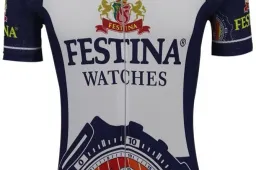 Front24218-02-2026
Front24218-02-2026 - You need to get out moreJezla18-02-2026
- Ego and self regard are at the center of most human folly.TheOlderIGetTheFasterIWas18-02-2026
- You can't win 'em all. These early season races at this level are good because it shows where you are weak and need work.awp18-02-2026
- This is what I wrote 12-02-2026 10:00: "As far as I'm convinced, Remco still has "zero" wins. I invite Remco to stop in Siena to meet his Slovenian master, Pogi the G.O.A.T... but no, it's better to run away and hide. His fans will somehow defend and glorify him. Let me repeat, he still has zero wins in 2026. If someone doesn't have a high enough IQ to understand what I'm talking about, it's because they don't recognize the low ranking F category races. If Remco will beat Del Toro and Adam Yates in the UAE Tour, then I will consider this to be his first win in 2026. Ad acta." PS: Remco still has zero wins. His second and third class races don't count. The first real race comes along and Mustafa Remco fails.Mou-Cro-HR18-02-2026
- This is what I wrote 12-02-2026 10:00: "As far as I'm convinced, Remco still has "zero" wins. I invite Remco to stop in Siena to meet his Slovenian master, Pogi the G.O.A.T... but no, it's better to run away and hide. His fans will somehow defend and glorify him. Let me repeat, he still has zero wins in 2026. If someone doesn't have a high enough IQ to understand what I'm talking about, it's because they don't recognize the low ranking F category races. If Remco will beat Del Toro and Adam Yates in the UAE Tour, then I will consider this to be his first win in 2026. Ad acta." PS: Remco still has zero wins. His second and third class races don't count. The first real race comes along and Mustafa fails.Mou-Cro-HR18-02-2026
- OK, let's stop with the BS. Remco Mustafa didn't have any cramps, 100%. The only truth is, Remco is not the great cyclist that the Belgians and his fans want us to think. Ad acta!!!... Once in the fall of 2025 I said that Remco's chances of following Pogi are equal to my chances, there is no difference. The only difference is that I'm in front of a TV and Mustafa is acting and making excuses live in front of an audience of millions. Ayuso and Remco are the biggest liars in the peleton.Mou-Cro-HR18-02-2026
- I just hope that he just says that he got cramps and that's it, rather than some long-winded excuse which makes him seem even more of a piece of...
 Rafionain-Glas18-02-2026
Rafionain-Glas18-02-2026 - finally, a team that does something smart. I could never understand why Ineos would like Egan train as he did alone. put a motorbike behind him with an earpiece to call out issues above. same with remco crashing into a postal truck.mij18-02-2026
Loading
Write a comment
